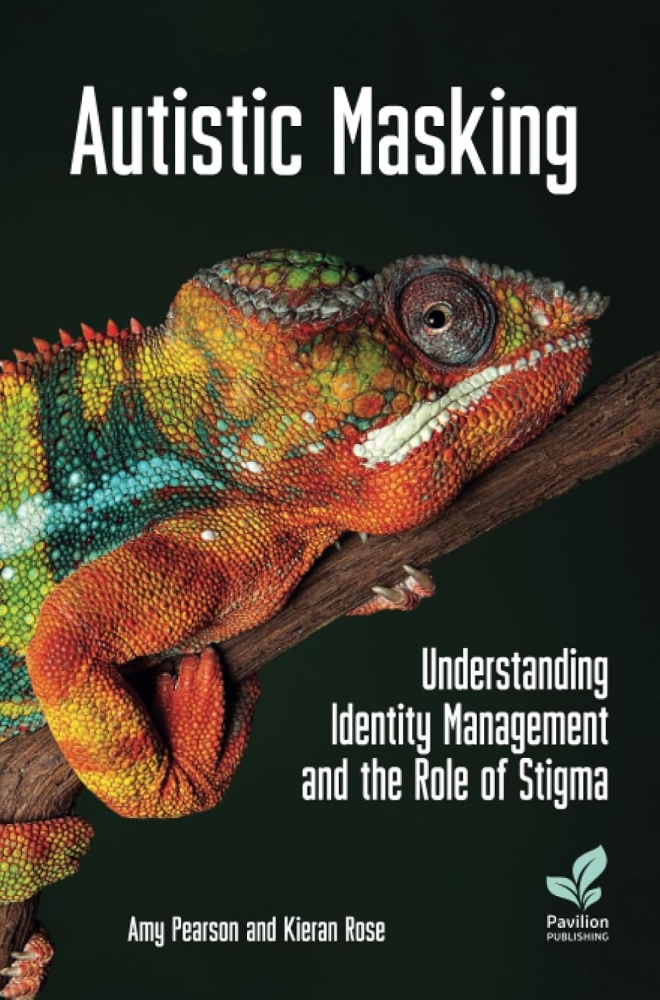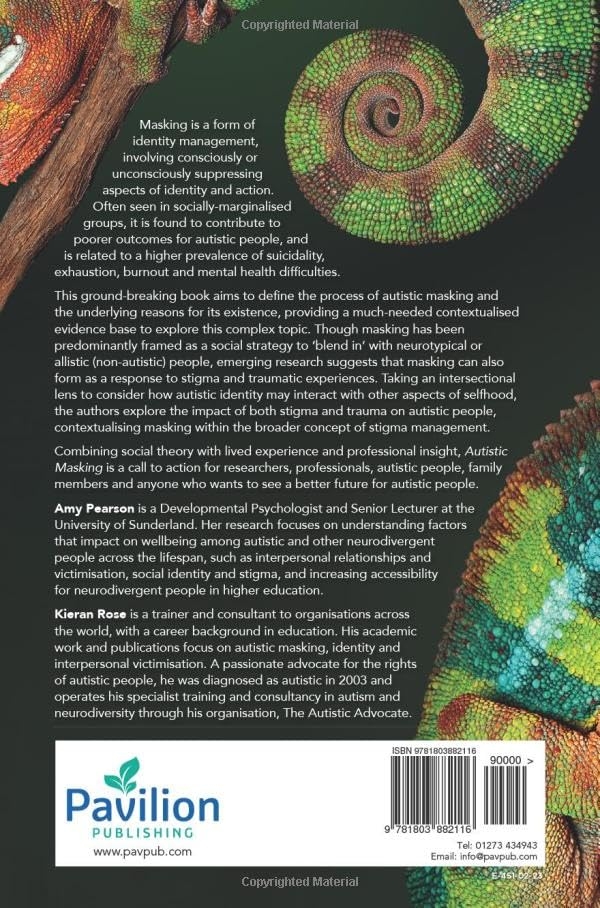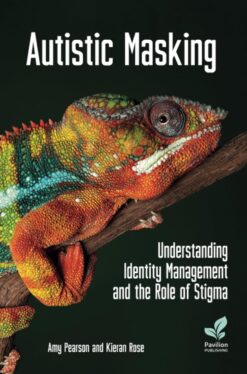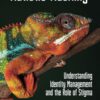About the Author
Kieran Rose operates the Autistic Advocate, delivering specialist training and consultancy in autism and neurodiversity. He is a published research partner with the Institute of Leadership and Management on the experiences of neurodivergent people in employment. He is a Research Associate at the University of Sunderland, co-producing qualitative research into different areas on autism with his research partner, Dr Amy Pearson. https://theautisticadvocate.com
Amy Pearson is a Senior Lecturer in Psychology at the University of Sunderland and an autistic autism researcher. Her work focuses on understanding the impact of interpersonal victimisation among autistic people, and the relationship between autistic identity and masking/stigma.







NT in A ND World –
A life changing book
Autistic masking book review written by Amy Pearson and Kieran RoseMany people who grow up without a diagnosis are labelled as “picky”, “blunt” or “resistant to change” long before they are identified as autistic.Amy Pearson and Kieran Rose – Autistic Masking 2023The second chapter covers the history and social concept of Autism. Which in itself is well worth reading.I struggled to read the book at first as its aim is to be an academic touchstone on Autistic Masking. I’ve never been one for Academia which is probably why I struggled. But it’s also written in way that it is open to a broader audience than just that for which I am very grateful.So after stop starting a few times I picked it back up. I think the timing was right as I am just beginning to find and understand my Neurodivergent Self and Personal & Social Identity in Adulthood. (43 years old 😂)All my recent lightbulb moments have helped for sure. Thanks, Scott, Laura, Katie, Helen, Viv, Julie, Tigger. Right now I think I’m going through “an intense period of re-processing that information through a new lens”.At the same time realising I don’t fully know my “true” self as I’ve been masking for so many years. Now if this imposter syndrome and internalised ableism would bugger off I’ll carry on my merry way.Anyway I digress, but this book finally gave me the words to explain what I’ve been going through.On to chapter 5 when it moves onto Intersectionality. As a Cis white middle aged male I recognise my privilege. So this chapter has helped me to understand it even more so. Once I’ve finished this book I have a list of books from black and indigenous authors that I plan to read to educate myself more to further understand systemic racism, white supremacy and micro aggressions. On that note if you have any page or blog recommendations please post them in the comments.There is so much more to intersectionality, and this chapter helps you to get more of an understanding. It has certainly helped me to have a better appreciation of the nuances.It also helped me to realise how very important what every advocate does is. Representation matters, without so many people sharing their lived experience the confirmation bias with professionals will continue.Although you must remember the book is about masking and how things like history, stigma, intersectionality, social identity and trauma intertwine with how and why we mask. There is some really insightful information throughout the book.This, in my opinion has lead me to learn more about Autism and the many intricacies of what may lead to masking.The chapter on Stigma was insightful. Not only on its effect on masking but how complex it is. Even within one of the positives to come from stigma, the Autistic community / neurodiversity movement. As I type this I sit in discomfort and acknowledge that I’ve lived in a bubble, not really understanding the intricacies and depth of Stigma and its effects. I cannot talk for anyone affected by it, but I can and will seek to understand and listen and learn and un-learn.Talking of learning, I don’t think there is a chapter in this book where I have not learned something. Which leads me on to the chapter about trauma. I genuinely didn’t realise there are so many different types. It was certainly thought provoking and given me a lot to unpack personally and to consider around Generational Trauma, sense of otherness and identity shame.It also highlighted how important it is to stop viewing Autism or any Neurodivergence through a pathological lens. Again a proofing point of how important it is to share and learn from neurodiversity affirming resources.If educators were to read just one chapter I’d suggest it is the one relating to trauma. So much insight in to why our education system needs to change.As I got to chapter 10 and The Impact of Masking it deeply resonated. Now I need to unpack it and decide what to do next. If of course I can negate the stigma and imposter syndrome.More than that though, it makes you consider the impact acceptance and masking has on your mental health. Which of course the stigma makes even more complicated in your journey of acceptance. But it also highlights how we need to consider our own privilege when talking about unmasking. Sadly, it isn’t safe for everyone to do so and we need to respect that. But also learn from and listen to those with that lived experience.Chapter 12 goes into this in more detail.Chapter 11 talks about “Projecting acceptability” which makes you realise that masking is not always suppressive. It’s also interesting to consider where the research and conversation around masking will go next.As previously mentioned the book was written to be a touchstone on Autistic Masking. For me it’s been so much more than that. So if you are Autistic yourself or suspect it. I certainly recommend the book.It goes into great detail on the theories of why people mask. It is so much more complicated than I had even began to understand.But now that I know more I can begin to develop a sense of authenticity by further development of self-insight & understanding.It has also made me want to join The Inside of Autism, Kieran’s online training/community membership even more than I already did. I think this could be due to Chapter 12 where it talks about Kieran’s Advoc8 framework. I would imagine this is intertwined within their online community.I have probably taken something from this book that the authors wouldn’t expect or intend. After all the book is aimed at Academics and professionals. For those that fall into this category in my humble opinion this is a must read!The book ends with a meaningful message to advocate for cultural and social change – to be the change you want to see.I think imposter syndrome had stop me posting this sooner. But after attending the Aucademy live with Kieran and Amy this evening I felt it was the right time.
Danni Woodhams –
A ground-breaking must read
Kieran and Amy have poured heart and soul into creating a pivotal piece of literature. This book is a deep dive into autistic identity, using an intersectional lens to discuss topics such as social identity, the impacts of stigma and trauma, historical context and current research, and of course autistic masking and the impacts masking has on autistic people. Woven throughout is a narrative of hope – a push for positive changes. It really is a call to action for anyone who wants to make the world a better place for autistic people.
Janine Taylor –
Just ausome
Autistic Twitter perennially asks the question: What’s your favourite/most useful book about autism? This book, I can say, is my new number one. (Bumping Nick Walker’s “Neuroqueer Heresies” down to second.) I’ve only read the first two chapters so far but the presentation of the complex, nuanced history of autism alone puts it top of my list. It is clear, accessible, informative and doesn’t make me want to throw it across the room (as most texts on this topic do, in one way or another.) Highly recommended.
Mr Nibble –
Brilliant – everyone should read!
Got as far as my name so far – but I’m sure the rest is great ;)This is such important work and I am glad Kieran and Amy got to share their incredible knowledge with the rest of the world. Everyone needs to read this book, from academics to professionals, autistic adults to their families.
Eve –
Insightful new perspective
Very insightful book